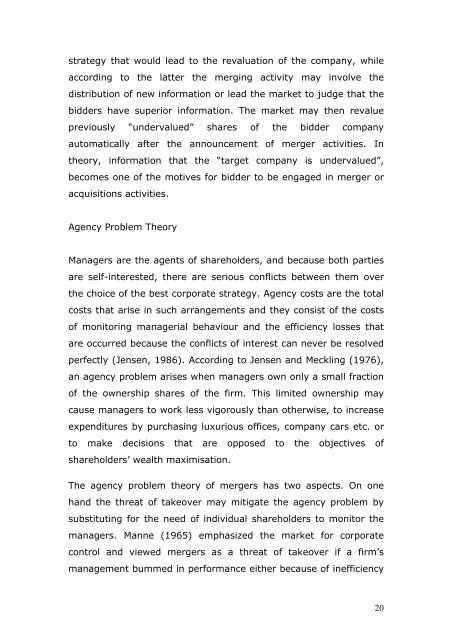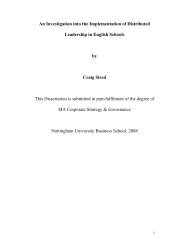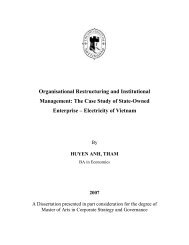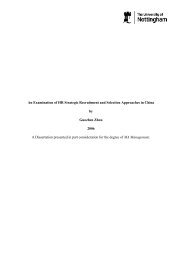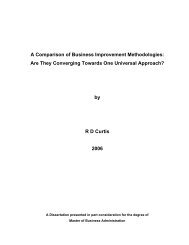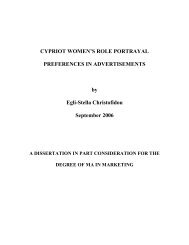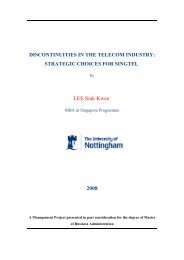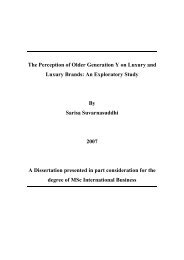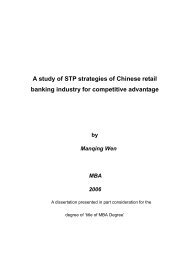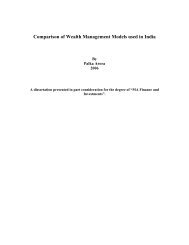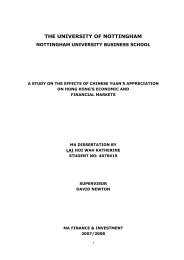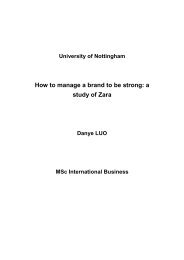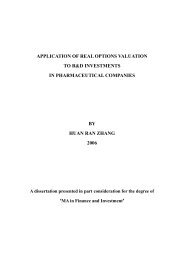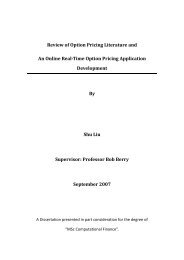Post merger profitability analysis of shareholders. Evidence from ...
Post merger profitability analysis of shareholders. Evidence from ...
Post merger profitability analysis of shareholders. Evidence from ...
Create successful ePaper yourself
Turn your PDF publications into a flip-book with our unique Google optimized e-Paper software.
strategy that would lead to the revaluation <strong>of</strong> the company, while<br />
according to the latter the merging activity may involve the<br />
distribution <strong>of</strong> new information or lead the market to judge that the<br />
bidders have superior information. The market may then revalue<br />
previously “undervalued” shares <strong>of</strong> the bidder company<br />
automatically after the announcement <strong>of</strong> <strong>merger</strong> activities. In<br />
theory, information that the “target company is undervalued”,<br />
becomes one <strong>of</strong> the motives for bidder to be engaged in <strong>merger</strong> or<br />
acquisitions activities.<br />
Agency Problem Theory<br />
Managers are the agents <strong>of</strong> <strong>shareholders</strong>, and because both parties<br />
are self-interested, there are serious conflicts between them over<br />
the choice <strong>of</strong> the best corporate strategy. Agency costs are the total<br />
costs that arise in such arrangements and they consist <strong>of</strong> the costs<br />
<strong>of</strong> monitoring managerial behaviour and the efficiency losses that<br />
are occurred because the conflicts <strong>of</strong> interest can never be resolved<br />
perfectly (Jensen, 1986). According to Jensen and Meckling (1976),<br />
an agency problem arises when managers own only a small fraction<br />
<strong>of</strong> the ownership shares <strong>of</strong> the firm. This limited ownership may<br />
cause managers to work less vigorously than otherwise, to increase<br />
expenditures by purchasing luxurious <strong>of</strong>fices, company cars etc. or<br />
to make decisions that are opposed to the objectives <strong>of</strong><br />
<strong>shareholders</strong>’ wealth maximisation.<br />
The agency problem theory <strong>of</strong> <strong>merger</strong>s has two aspects. On one<br />
hand the threat <strong>of</strong> takeover may mitigate the agency problem by<br />
substituting for the need <strong>of</strong> individual <strong>shareholders</strong> to monitor the<br />
managers. Manne (1965) emphasized the market for corporate<br />
control and viewed <strong>merger</strong>s as a threat <strong>of</strong> takeover if a firm’s<br />
management bummed in performance either because <strong>of</strong> inefficiency<br />
20


